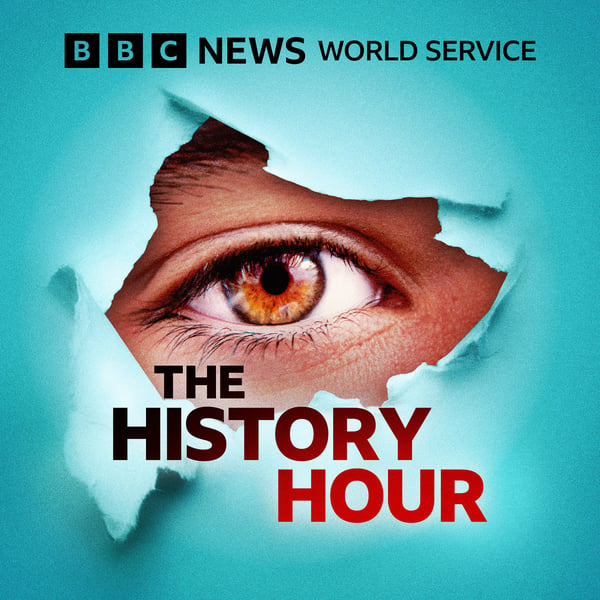Inuit children taken from families and Le Mans crash
The History Hour
BBC
4.4 • 879 Ratings
🗓️ 9 June 2023
⏱️ 52 minutes
🧾️ Download transcript
Summary
Max Pearson presents a collection of this week’s Witness History and Sporting Witness stories.
We hear about the Inuit children taken away from their homes and culture, to be educated in Canadian cities. Adamie Kalingo tells his story about being placed with a foster family in Ottawa in 1964. Dr Raven Sinclair explains how Adamie’s story was part of a wider program of resettling Indigenous children.
Also, the crash at Le Mans which killed 80 people in 1955; the ceremony in 2005, organised by campaigner Ilguilas Weila, to free 7,000 slaves in Niger; plus, the forensic artist whose reconstructions have helped solve murders.
Finally, we find out whether a man can ever beat a horse in a race.
Contributors: Adamie Kalingo, taken from his Inuit community in 1964 Dr Raven Sinclair, retired professor of social work John Fitch, racing driver Ilguilas Weila, anti-slavery campaigner Richard Neave, forensic artist Huw Lobb, long distance runner Gordon Green, creator of the Man v Horse race
(Photo: Adamie Kalingo in 2023. Credit: Adamie Kalingo)
Transcript
Click on a timestamp to play from that location
| 0:00.0 | The explanation is the podcast from the BBC World Service that goes beyond the spin, |
| 0:06.7 | exploring the important questions about long-running stories and the latest global news an honest explanation of the events shaping |
| 0:16.4 | our lives. Search for the explanation wherever you get your BBC Podcasts. |
| 0:25.0 | Hello and welcome to the History Hour Podcast from the BBC World Service with me Max Pearson, the past brought to life by those who were there. |
| 0:36.6 | Coming up, the deadliest crash in motor racing history. |
| 0:40.0 | A tragic blow overtook the event some six hours ago when one of the most terrible accidents in the history of motor racing |
| 0:47.0 | occurred not 200 yards from where I speak. |
| 0:50.0 | Also a campaign to free 7,000 people from slavery in Niger, the history of facial reconstruction, which can help solve murders, and a most unusual contest, man versus horse. |
| 1:02.0 | We started to talk about whether a runner would be better |
| 1:06.7 | than a horse. I said a runner would probably be faster than a horse. Eventually we decided to put it to the test. |
| 1:14.6 | That's coming up later in the podcast, but we're going to begin with a difficult chapter |
| 1:18.6 | in Canada's history. In the early 1960s, the government launched an experimental program to take academically promising Inuit children from their homes to be educated in Canadian cities. |
| 1:29.5 | Adam Eglingo was sent to Ottawa at the age of 12 and he's been speaking to Maria Margarones. |
| 1:36.0 | It was very hot for me, September 11, 1964. |
| 1:42.3 | I was sweating because I was wearing my clothing that I usually wear back in Saluit. |
| 1:51.0 | Everyone else around me were wearing shorts and short sleeve serge, which I never got quite |
| 1:59.8 | used to seeing hairy legs of men and everybody seemed to be half naked. |
| 2:08.0 | Which was not my culture. |
| 2:13.0 | Adami was born in the little village of Iwuewick on Canada's northern shore |
| 2:17.2 | in a world that had hardly changed for hundreds of years, |
| 2:20.1 | shaped by the Arctic landscape, ice and snowing winter, tundra and open sea in summer. |
| 2:26.0 | When I was six years old, we moved to cellulite by a community boat because there was no economy here and there was no housing |
... |
Please login to see the full transcript.
Disclaimer: The podcast and artwork embedded on this page are from BBC, and are the property of its owner and not affiliated with or endorsed by Tapesearch.
Generated transcripts are the property of BBC and are distributed freely under the Fair Use doctrine. Transcripts generated by Tapesearch are not guaranteed to be accurate.
Copyright © Tapesearch 2025.

